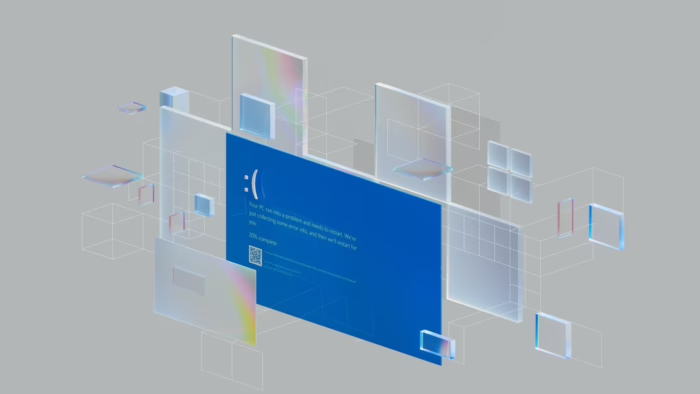
Why Cybersecurity Matters for Students
Life as a student is already busy enough with lectures, assignments, and deadlines. But while you’re juggling your coursework, there’s something else that needs your attention—your cybersecurity. Whether working on a research project, attending online classes, or managing important personal files, your computer holds sensitive information. If it’s not properly protected, you could be an easy target for hackers, malware, or even identity theft.
Cyber threats don’t just affect big companies or government institutions. Students are often targeted because they might not have strong security measures. A click on a sketchy link or a weak password can put your entire system at risk. The worst part? You might not even realize something is wrong until it’s too late.
With everything students must keep up with, cybersecurity can sometimes feel overwhelming. It’s like thinking, I have so much to do—can I hire dissertation writer professionals while I figure this out? But don’t worry! Securing your PC doesn’t have to be complicated. Some smart (and not-so-obvious) measures can make a big difference and are easier to implement than you think. Let’s dive into the best cybersecurity tips that go beyond the basics.

Using a Secure DNS for Safer Browsing
Your computer connects to websites using DNS (Domain Name System) servers, which translate website names into IP addresses. But did you know that your default DNS settings might not be secure? Cybercriminals can hijack DNS queries and redirect you to fake websites without realizing it.
How to Fix This
- Use a privacy-focused DNS service like Cloudflare’s 1.1.1.1 or Google’s 8.8.8.8.
- Change your DNS settings in your computer’s network settings for added security.
- Some secure DNS services also block malicious sites, adding an extra layer of protection.
Many students researching online also seek a dissertation writing service to help them with complex assignments while staying safe online.
Setting Up Application Sandboxing
Downloading new apps and tools is part of student life, but not all are safe. Some software might contain malware or hidden trackers that steal your data.
How to Fix This
- Use Windows Sandbox (built into Windows 10 and 11) to run suspicious applications in an isolated environment.
- If you’re on macOS, use App Sandbox to restrict what apps can access on your system.
- Try third-party tools like Sandboxie, which create a safe space to test new programs without exposing your real system.
Dissertation writers can help lighten the load for those juggling school and cybersecurity by assisting with assignments.
Hardening Your Browser Against Threats
Most students spend a large chunk of their time online, researching, writing, and attending virtual lectures. But your browser can be weak if it’s not properly secured.
How to Fix This
- Install privacy-focused extensions like uBlock Origin to block malicious ads and trackers.
- Disable browser autofill for passwords and payment details, as they can be exploited.
- Use a browser with built-in security features, like Brave or Firefox, and enhanced tracking protection.
Keeping your browser secure is key whether you’re searching for cybersecurity guides or a custom dissertation writing service.
Enabling Two-Factor Authentication (2FA) for Important Accounts
Many students rely on cloud storage for notes, emails for communication, and social media for staying connected. If any of these accounts get hacked, it can be a nightmare.
How to Fix This
- Enable 2FA on all important accounts like email, school portals, and cloud storage.
- Use an authenticator app (like Google Authenticator or Authy) instead of SMS for better security.
- Never reuse passwords—use a password manager like Bitwarden or 1Password.
Students often need to access accounts to submit assignments, whether they’re conducting research or using professional dissertation writers for academic help.
Protecting Your Webcam and Microphone from Spying
Cybercriminals can access your webcam and microphone without your knowledge, which is a huge privacy risk.
How to Fix This
- Cover your webcam with a physical cover or a piece of tape when unused.
- Disable microphone and camera access for apps that are not needed in your system settings.
- Use software like OverSight (Mac) or MicMute (Windows) to detect unauthorized access.
This is especially important for students working on private research or tasks like dissertation writing where privacy matters.
Encrypting Sensitive Files and Documents
Your schoolwork, personal notes, and important files should be stored securely in case your device gets hacked.
How to Fix This
- Use BitLocker (Windows) or FileVault (Mac) to encrypt your hard drive.
- Use tools like VeraCrypt or 7-Zip (AES encryption) for individual files.
- If storing files in the cloud, ensure they are encrypted before uploading.
Many students working on personal statements or needing a dissertation writer take extra precautions when storing their drafts.
Using a VPN for Extra Privacy
Public Wi-Fi is convenient, but it’s also risky. Hackers can intercept your data on unsecured networks.
How to Fix This
- Use a VPN (Virtual Private Network) whenever connecting to public networks.
- Avoid free VPNs—they often sell user data. Opt for a trusted provider like ProtonVPN or NordVPN.
- Turn off Wi-Fi auto-connect to prevent accidentally connecting to unsafe networks.
If you’re researching ways to “Write my dissertation,” using a VPN can help protect your online activity from being tracked.
Avoiding Social Engineering Attacks
Not all cyberattacks come from malware—sometimes, hackers trick people into handing over sensitive information.
How to Fix This
- Never click on unexpected email links or attachments, even if they look legit.
- Be cautious of urgent requests asking for login details or personal information.
- When in doubt, verify requests with your school or the person directly.
Phishing emails sometimes mimic trusted services like PhD writers for college, so double-check the source before clicking links.
Final Thoughts
Cybersecurity is more than just having a strong password or an antivirus. As a student, your data, assignments, and even financial information can be at risk if you don’t take the right precautions. With a few smart (and easy) adjustments, you can keep your PC safe while focusing on what matters—your studies.
Whether you need someone to “Write my dissertations” submit an important custom dissertation project, or simply browse the internet safely, these cybersecurity measures will help protect you from digital threats. Stay safe, stay smart, and keep your tech secure!
